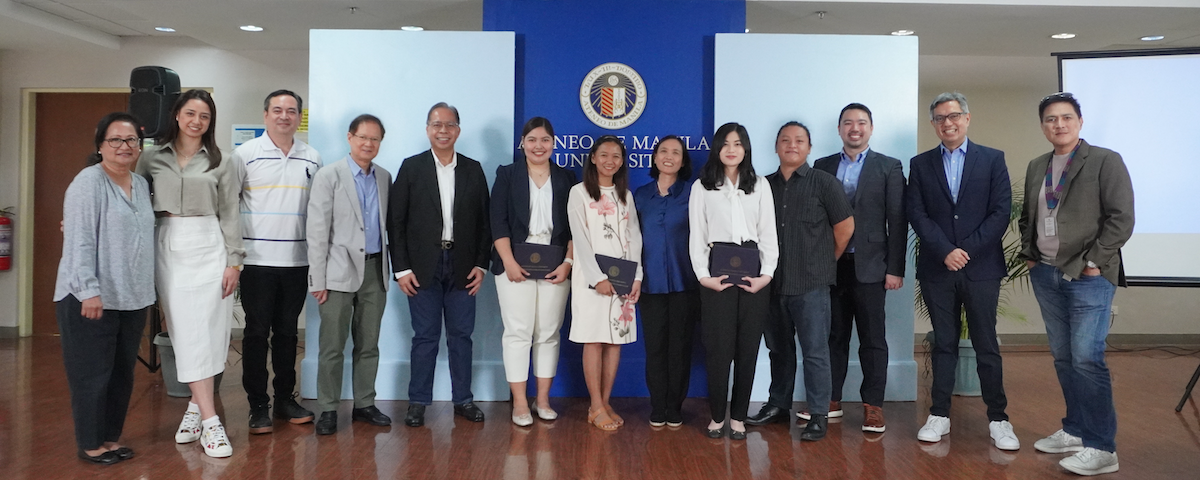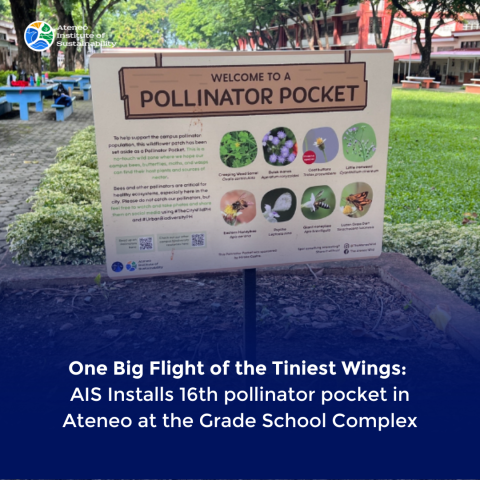The John Gokongwei School of Management celebrates its best graduate research at the 3rd JGSOM Research Colloquium
16 Apr 2024
Ateneo de Manila University's John Gokongwei School of Management (JGSOM) celebrated its graduate students and their research programs during the third JGSOM Research Colloquium, conducted on 13 April 2024.
The JGSOM Research Colloquium recognizes the best research projects conducted by the school's graduate students. At the same time, it also highlights the importance of research conducted in the Philippines about subjects and topics relevant to the Philippine setting, especially as there is a notable lack of data when it comes to the latter.
It was this point that JGSOM Dean Dr Roberto N Galang pointed out in his opening remarks, as to why continuing to put out research was important, even other higher education institutions have come to question the exercise.
"Yesterday I had a chat with one of our big donors to the University, and we were talking about how we were moving a lot of the work towards AI, and data analytics, and how JGSOM was at the forefront of this space," he said. "And then he mentioned to me that, while it's nice to learn data analytics, it's nice to learn data science, pero sa Pilipinas ang problems, walang data!"
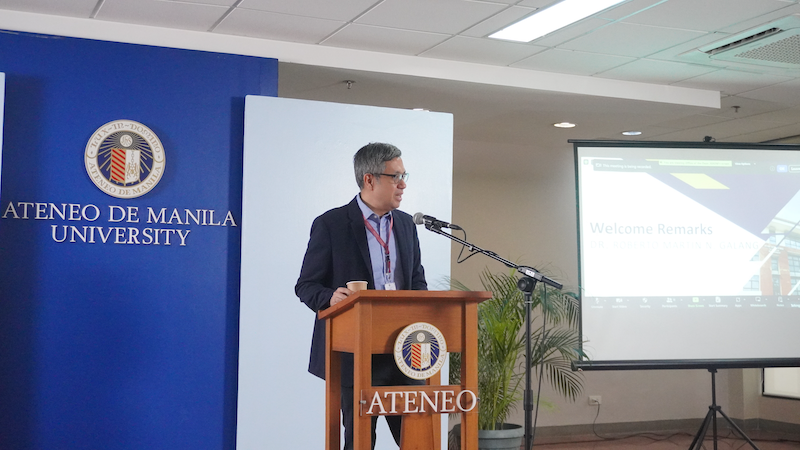
"Because we don't do enough research in this country, then we push ideas that are created, especially in the developing world, that we have zero use for in a country like ours," he added. "So it's up to us, here in this room, up to the people out there listening to us, that when we push the frontiers of research, try to understand how can we do sustainability here, how can we do leadership here in the Philippines. Because many times, what works outside, may not work here."
Following Dr Galang's remarks, JGSOM Research Coordinator Dr Enrico C Osi, explained the awarding process for the Colloquium.
The eight papers – seven theses and one dissertation – in the colloquium were nominated by their respective advisers. The papers were then subjected to a blind peer review by a panel of distinguished reviewers from international universities.
The criteria for the peer review process included novelty of findings; soundness of research design; appropriateness of methodology; quality of findings and discussion; value and contribution to study; and journal readiness.
Each of the finalists was given time to present their research on stage. The finalists were given certificates recognizing their research's selection in the Colloquium, before the presentation of the awards for Outstanding Graduate Thesis and Outstanding Graduate Dissertation.
The authors of the seven nominated theses were Silvestre D Yraola III, Bienvenido Y De Guzman III, Faye Nadine D S Tungcul, Jeanne Maika T Virtudazo, Jonalyn M Periña, Sherilyn F Valdecañas, and Lorenzo L Tiongson.
The award for Outstanding Graduate Thesis was given to Ms Virtudazo for her thesis titled "Exploring Sustainable Value Co-Creation in Addressing Environmental Issues in the Food and Beverage Packaging Industry." The study investigated how the food and beverage packaging industry contributes to plastic pollution – a major environmental challenge faced by the country.
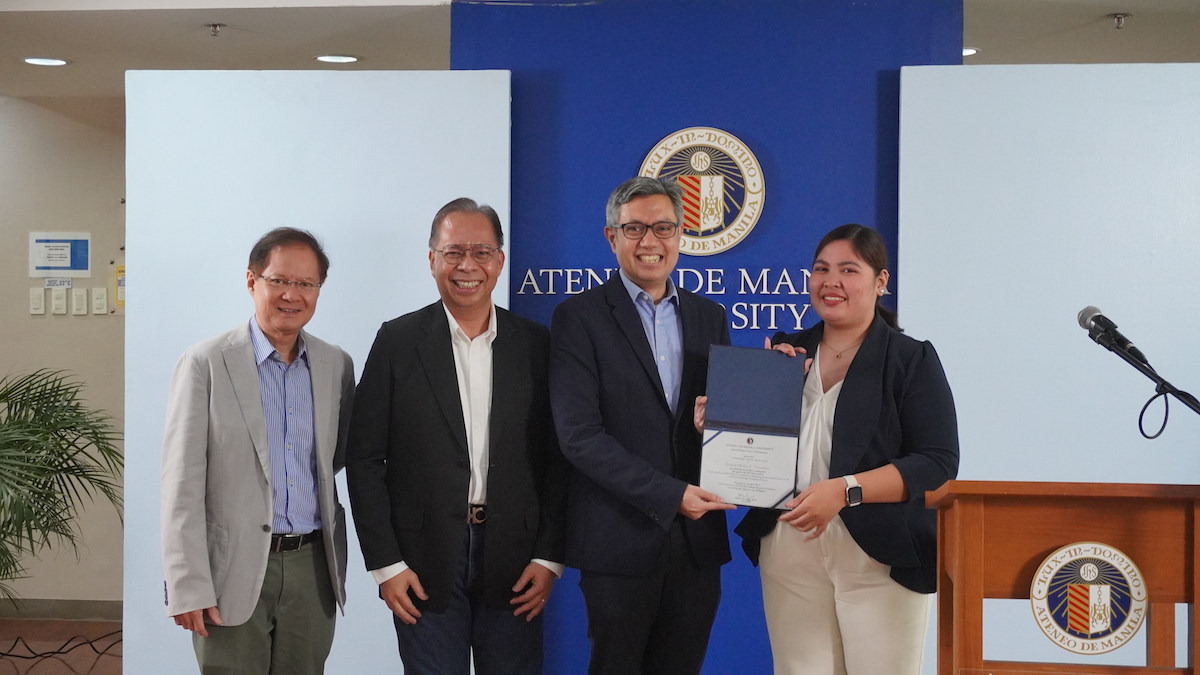
The award for Outstanding Graduate Dissertation was given to Dr Robert Edric Josef R Lizares for his paper "Building Sustainable Organizations Online: How Leaders Embed Sustainability into Organizational Culture in Virtual Contexts." In this dissertation, Dr Lizares investigated the challenges that virtual collaboration poses to the multisectoral collaboration needed to come up with the systemic solutions necessary for sustainable development.
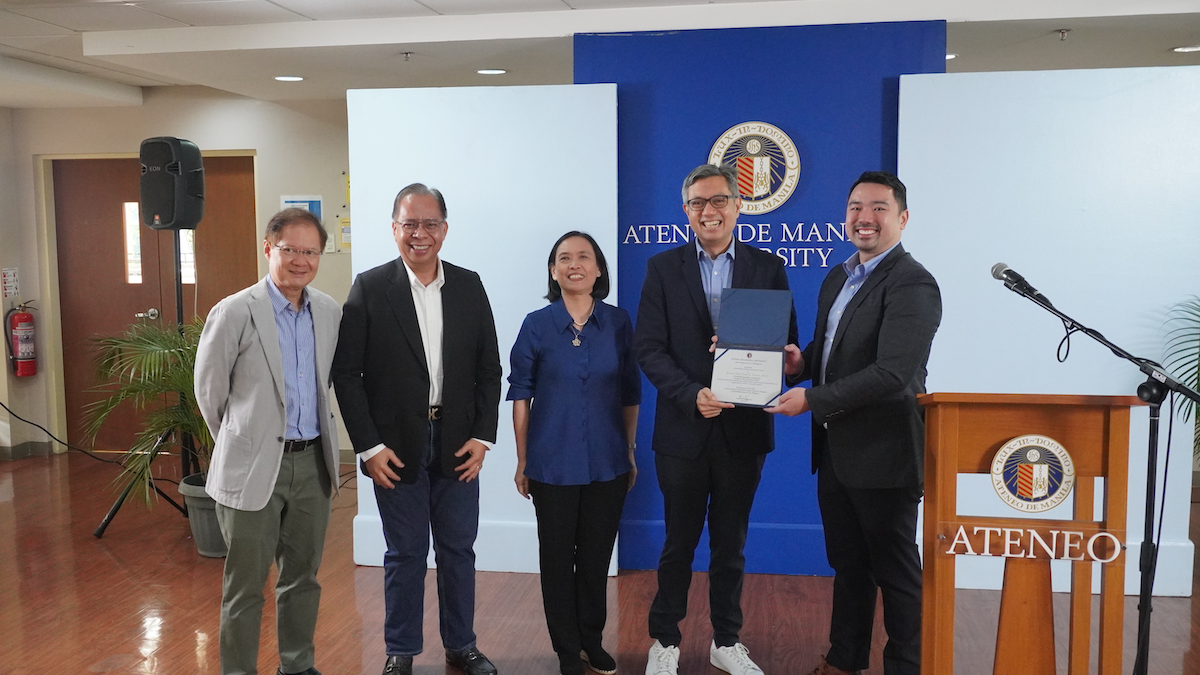
Following the awarding, Dr Filomeno V Aguilar, Jr, Chair of the University Research Council and Assistant Vice President for Research, Creative Work, and Innovation gave the closing remarks.
"It's a great pleasure to be able to see that in JGSOM, we are also now striving to really emphasize knowledge production," Dr Aguilar stated. "And we see this in terms of the increase in publications by members of the faculty as well as by the work of students, because students will not be able to generate that kind of good work unless our faculty members are there who are capable and efficient, to be able to guide our students."
"It really is good testimony to the kind of work that is being done in the John Gokongwei School of Management," he added. "And I hope to see more of this kind of output in the future."



